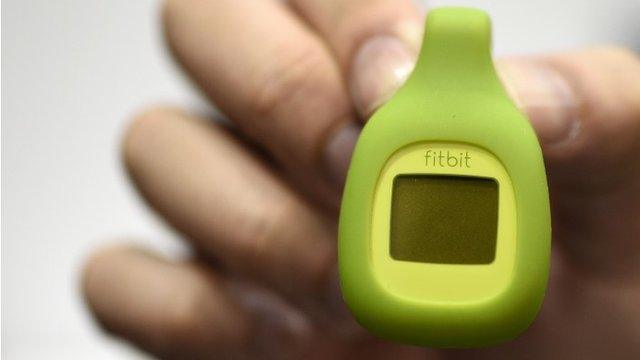Fitness trackers 'overestimate' calorie burning
- Published
- comments
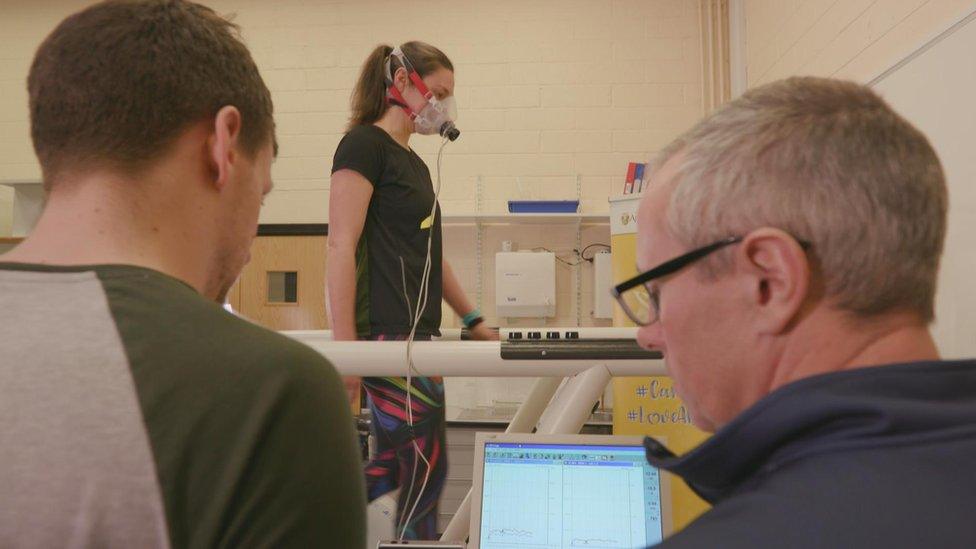
The test involved a volunteer doing exercise with an oxygen monitor to accurately measure calorie usage
Popular brands of fitness trackers can overestimate the number of calories burned while walking by more than 50%, tests have found.
Researchers at Aberystwyth University found all products - ranging from £20 to £80 in price - were inaccurate during walking and running tests.
Dr Rhys Thatcher said devices had an "inherent tendency" to over-measure.
Fitbit said its product was based on "extensive research", but others said theirs were "not medical devices".
The tests, carried out for the BBC X-Ray programme, measured the amount of oxygen a volunteer used during ten minute walking and running sessions on a treadmill, before comparing it to the various fitness trackers.
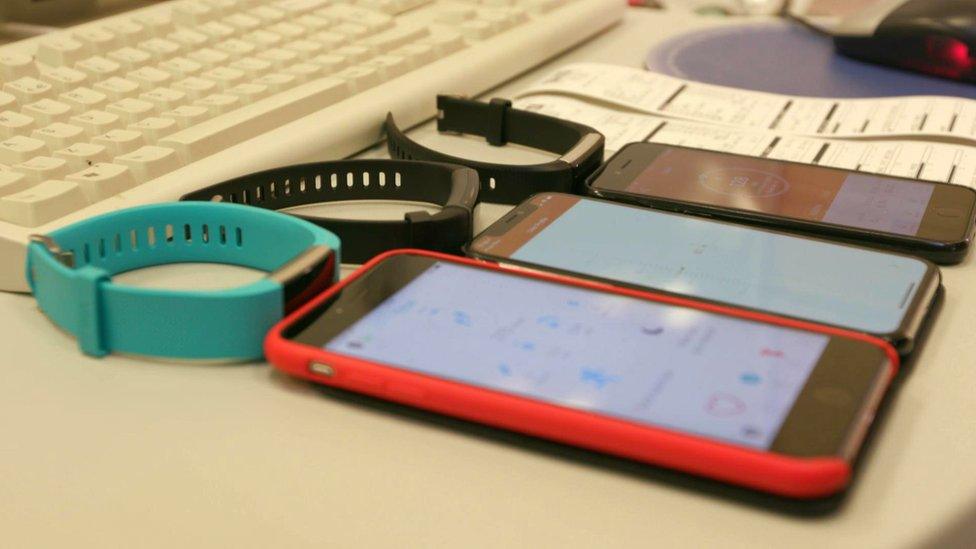
The Fitbit Charge 2, which is the best selling fitness tracker on the market, was very accurate in testing calories burned while running, underestimating by 4%. But when measuring walking, it overestimated by more than 50%.
Cheaper devices - the Letscom HR and the Letsfit - underestimated the number of calories burned while running by 33% and 40% respectively.
But both were far more accurate in the walking test. The Letscom overestimated by 15.7% while the Letsfit was only 2% above the official measurement.
"If you want to know the exact number of calories that you are burning during an exercise session then it doesn't matter which device you use, you have to interpret the data with some caution," Dr Thatcher said.

Dr Rhys Thatcher from Aberystwyth University conducted the research
He added the inaccuracies were not important if they were being used as a motivational tool or to track progress.
Fitbit said it was confident about the performance of its product.
Letscom and Letsfit said their devices depend on data such as height and stride for accuracy and are not scientific devices, giving only estimations.
X-Ray is on BBC One Wales at 19:30 GMT on Monday 28 January
- Published16 April 2018
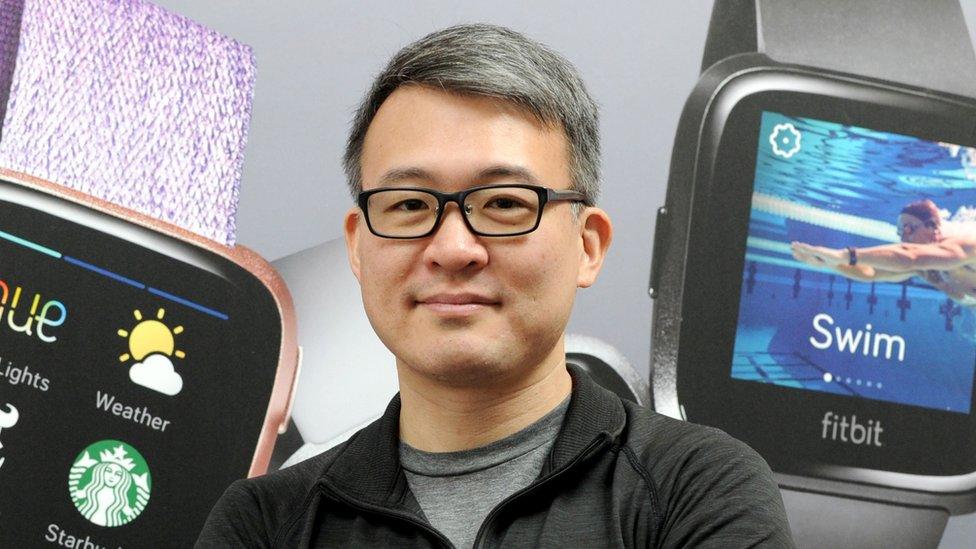
- Published2 August 2018

- Published4 October 2018
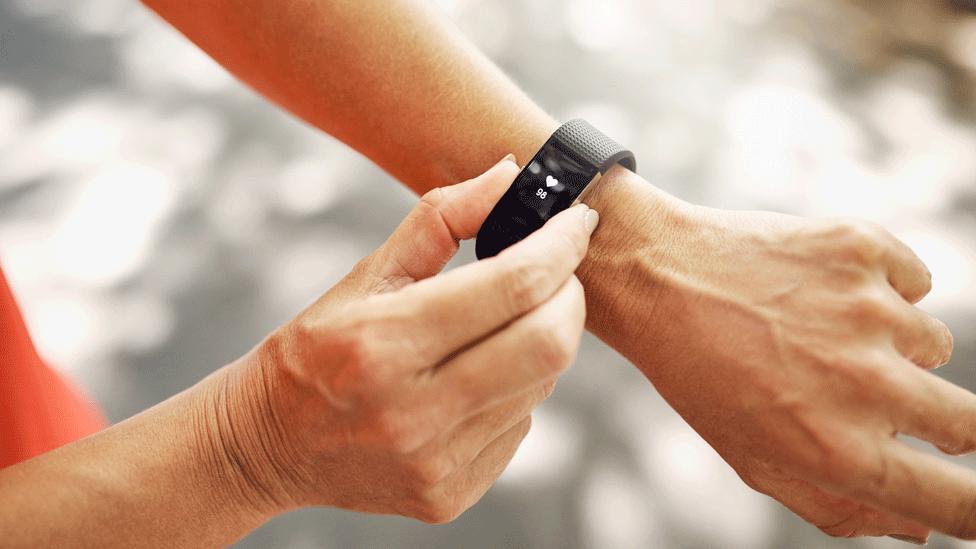
- Published2 November 2015
